#70s afghanistan
Explore tagged Tumblr posts
Text

Uzbek And Turkmen Carpet Merchants In Faryab Province, Afghanistan, 1978
#afghanistan#uzbek#turkmen#afghan rugs#70s#70s Afghanistan#afghan#photography#own post#central asia#faryab
132 notes
·
View notes
Text
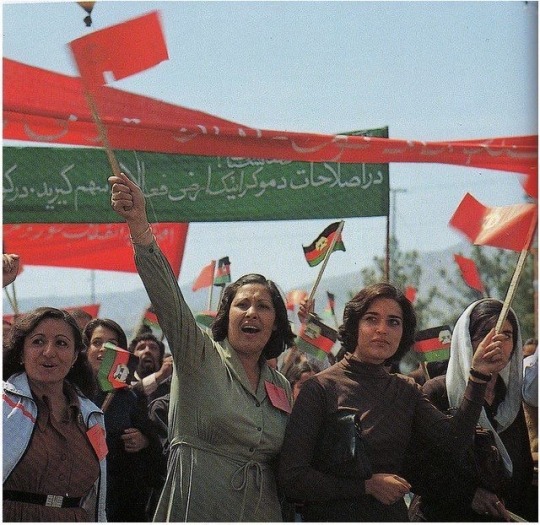
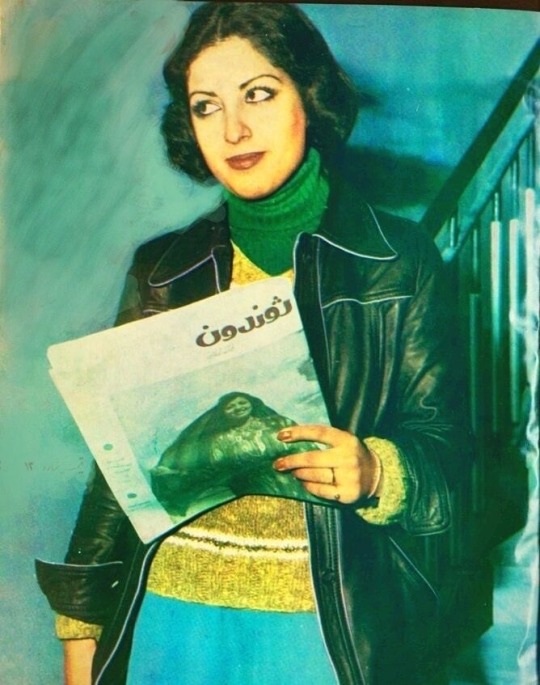
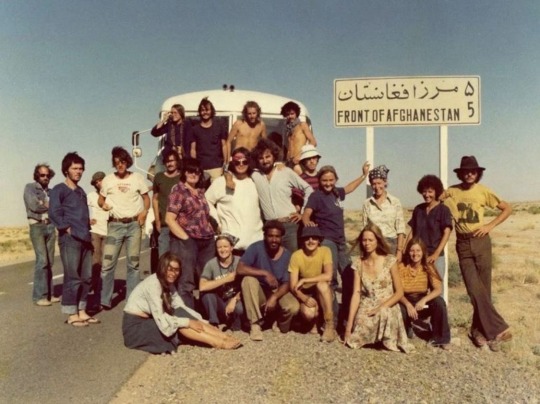

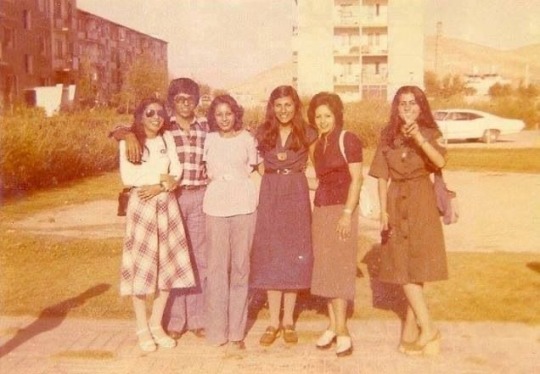
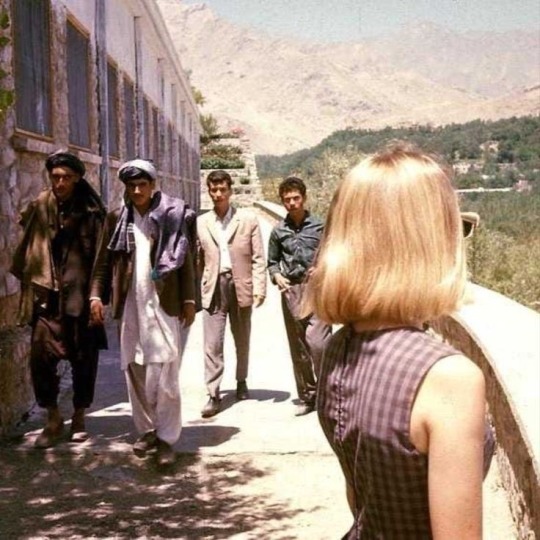
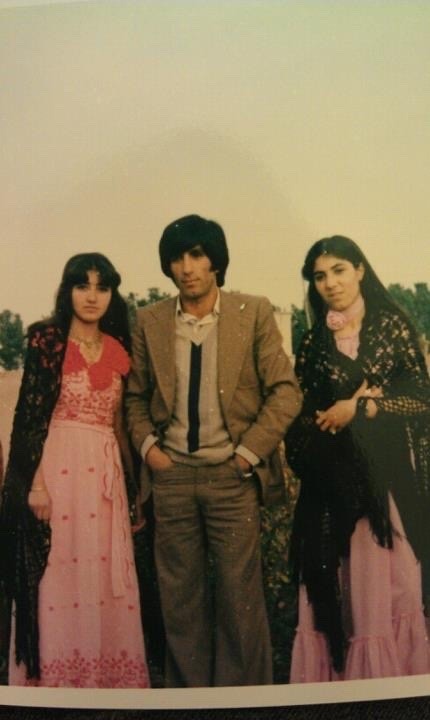
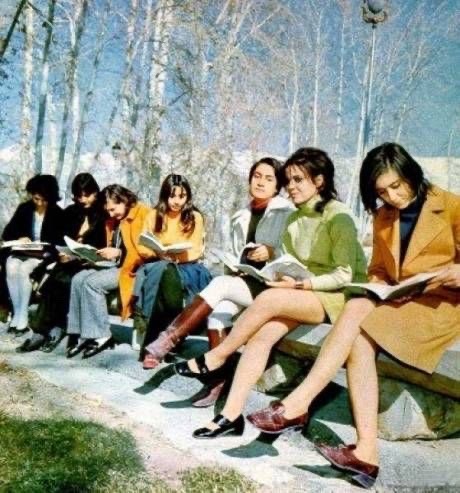
Afghanistan before the Taliban
#90s#80s#70s#60s#vintage photography#vintage#vintage photo#afghanistan#afghan#secular#hippie#1900s#1970s fashion#persian#middle eastern#south asian#central asia#asian#history
33 notes
·
View notes
Text
The Conversation of The Century
There are few things that shake the foundations of Civilization… If there is any conversation that echos throughout time… This is the one. https://x.com/elonmusk/status/1823218454369124491?s=61 pic.twitter.com/cPUMFx9Qu5— Elon Musk (@elonmusk) August 13, 2024 These are a few of what is trending since the “Elon Musk” “Donald Trump“ Conversation of the Century” look to see if there is a pattern.…
#MAGA#1000 parts per/mil#5 billion#500 yrs oil reserves#60-70 million illegal immigrants#Active process to reduce regulations#Afghanistan#AI#Alaska#American President#anti-Israel#anti-samite#Argentina#base on moon#better batteries#Biden#Biden Crime#Boeing 747#Border Cazar#bullet trains#California attorney#cashless bail#censorship#China#climate change#Co2#coup#Covid 19#creative people#Crime
0 notes
Text
War, my friends, where the only thing more twisted than the plot is the profit margins.
#black sabbath#heavy metal#metal#rock#70s#war#afghanistan#Gaza#Congo#Haiti#Sudan#navy#me#personal#writing
0 notes
Text
From the river to the sea, Palestine will be free 🇵🇸 🍉 Free Palestine, Congo, Sudan, Yemen, Tigray, Syria, Haiti, Hawai’i, Puerto Rico, Tibet. I've made a list for some donation and free resources for those who need them. Donation Pages and other resources you can help support (Donation Page for Palestine, Syria, Lebanon and other refugee camps) (The Palestine Children's Relief Fund) (Donations go towards Palestine, Lebanon and Jordan) (Purchasing eSims allows people within Gaza to connect to the outside to communicate with their families and also to show what’s happening within Gaza) (A donation site which provides urgently needed humanitarian aid in moments of crisis and conflict in 70 different countries.) (A donation page for Sudan Relief) (A donation page to send water, food and aid to those who are living in Yemen.) Other ways you're able to help for free, contact your local senators, boycott, inform yourself and others! Anything you are able to do is able to help. Inform yourself about Sudan, South Sudan, Palestine, Somalia, Uyghurs, Congo, Libya, Afghanistan, Yemen, Syria and Morocco Inform yourself about Haiti, Hawai'i, Puerto Rico, Tigray, Tibet, Uighurs, West Papau: (A collection of resources for organizers and anyone who wants to learn more about Palestine.) (A free daily button you can click to help the people of Palestine and other areas of crisis.) (A comprehensive list of brands to boycott and reasons why.) (Another list of brands to boycott.) (Contact your local US senator.) (Contact your local Canadian parliament) (Contact your local UK parliament)
You can use this call script if you call your local US government.
Call Script: My name is {Your Name}. I am a constituent of {Representative's Name}. I am calling to ask that the Representative add their name to the Ceasefire Now resolution led by Representatives Cori Bush and Rashida Tlaib, regarding the unfolding crisis in Gaza. It is absolutely urgent that the Representative demand a ceasefire, and that they call on Israel to allow humanitarian assistance into Gaza. The only way forward is addressing the root causes of violence: Israeli military occupation and apartheid, and ending U.S. complicity in this oppression.
#anything will help#from the river to the sea#strike for gaza#free palestine#congo#sudan#yemen#tigray#syria#haiti#hawai'i#puerto rico#tibet#resources#links
1K notes
·
View notes
Note
i only learned recently from a friend's who much more comic literate than I that magneto's backstory as an Auschwitz survivor wasnt planned from the start, which surprised me since it seemed to me a really integral part of his character. anyway, twofold question: how common is it to see capes with backstories tied to very specific historical events, and, as time inevitably passes and real world survivors of those events pass, how do they justify having their characters still alive and kicking? (stay safe on your mountaintop friend)
Depending on how wide you cast the net, this is a pretty big list! There are a lot of comics who's characters cutting-edge ripped-from-the-headlines origin later became a very specific historical event, or at least Of A Specific Moment, in a way the writers had no reason to anticipate the franchise would run long enough to have happen. But to shed pedantry and hone in on some specific ones;
The big one, of course, is Captain America. Superficially Cap's contemporary origin comes with a baked-in means of him making it to the present day- he gets stuck in the ice and then gets unthawed. The fly in the ointment, though, is when he unthaws. When they first brought him back into rotation in 1964, his stint in the ice was only around 20 years; long enough for there to be a significant culture shock, but not long enough that his entire social circle was dead or even culturally sidelined. Nick Fury is still around and kicking ass as a zeitgeist-appropriate 60s superspy. But the further the sliding timeline hauls forward his implicit date of release, the more it changes the tone and tenor of the resulting story. Losing twenty years is different from losing fifty years (as was the case in The Ultimates, where he very explicitly comes back during the Bush years as part of the book's commentary on The War On Terror) and those will both be way different from when we inevitably hit the point where he's lost 100 years and he's the cultural equivalent of a Civil War Vet or something. There's strength to all of those stories but they're undeniably different.
Iron Man's origin was originally explicitly tied to the Vietnam war; he was captured by a detachment of "Red Guerillas" while consulting for the US military and the South Vietnamese government. Unfortunately U.S. foreign policy to this day has prevented this from ever becoming an unresolvable storytelling issue.
The Fantastic Four are a case where their origin was intimately tied to the space race; their untested, cutcorner spaceflight was expressly an attempt to show up the Russians. The extremely specific political context of their test flight is something that sort of gets brushed off; the Ultimate incarnation (written by Warren Ellis) threaded this needle deftly by having the accident be a dimensional expedition instead, circa the early 2000s. I'm not actually sure how the urgency of their test flight is currently contextualized in 616 continuity. Anyone got their finger on that pulse?
The Punisher was also originally a Vietnam vet- but through the jaded cynical lens of the 1980s rather than the straightforwardly peppy and jingoistic lens that defined Iron Man's debut in the 60s. Current continuities I believe have mostly bitten the bullet and updated his origin to the invasion of Afghanistan. However, an interesting decision in the Garth Ennis-spearheaded Punisher MAX continuity of the early 2000s- where Punisher is literally the only costumed vigilante- is that they bit the bullet and posited a version of Frank Castle who really has been killing criminals nonstop since shortly after his return from Vietnam in the 70s, a man well into his 60s who's survivability and efficacy at killing are edging up against the boundaries of magical realism.
Hulk I feel sort of deserves a mention here- he's in a sort of twilight zone on this issue, as there was, uh, a pretty goddamn specific political context in which the Army was having him make them a new kind of bomb, but you can haul that forward in the timeline without complete destruction of suspension of disbelief. Pretty soon it'll be downright topical again.
To circle back around to The X-Men, Claremont introduced a lot of historical specificity with the ANAD lineup. Off the top of my head, Colossus was explicitly a USSR partisan (updated to a gangster forced into crime to survive in the mismanaged chaos of the USSR's collapse in the Ultimate Universe) and Storm was orphaned by a French bombing during the Suez War. More to the point, the timing was such that Magneto, in his upper-middle age, had a pretty strongly defined timeline vis a vis his ideological development vs Xavier; child during the holocaust, Nazi hunter who eventually rifts with Xavier during the mid-to-late 60s, and then the two of them spend their years marshalling their respective resources before coming to blows during the quote-unquote "Age of Heroes," whatever the timeline looked like for that in the 80s. And it was a timeline that held together pretty damn well in the 80s, but it's gotten increasingly awkward as time's gone on. The Fox films completely gave up on having it make sense, near as I can tell. In the comics they've had all sorts of de-aging chicanery occur that very pointedly ignores what an odd timeline that implies for everyone else in the X-books besides Magneto. The Cullen Bunn Magneto standalone from 2014-15 I remember actually leaned into playing up the idea that he's just old as shit and dependent on so many superscience treatments to remain functional that he's basically pickled, which was a take I liked; the comic ended when he died of exertion trying to stop two planets from crashing into each other, right before a brand-wide universal reset. When the MCU was at it's peak and people were wargaming how to integrate the X-Men (lol) you occasionally saw people float "fixes" for the issue, such as making Magneto a survivor of the Bosnian Genocide, or making him black and a survivor of the Rwandan genocide; I remember that this consistently drew a lot of ire from people who (reasonably) thought that his Judaism and connection to the holocaust were deeply important to his character, continuity be damned. But yeah, he's a character dogged by specificity in a way only Cap even slightly approaches. If this is a tractable problem I'm not going to be the one to tract it.
Interestingly, I'm genuinely having a lot of trouble coming up with stuff that's analogous to this at DC comics- almost universally the core roster updates into any given time period much more smoothly. Furthermore, DC stuff has always been much more willing to eschew Marvel's World-Outside-Your-Window philosophy in favor of deliberately obfuscating the time period via the Dark-Deco aesthetic of BTAS's Gotham or the retrofuturism of STAS's Metropolis.
The closest you get to this kind of friction is The Justice Society, who, pre-crisis, were siloed off in a universe where superheroes had existed since the 40s and there was no comic book time, so they were all in their upper-middle-age to old age now, with their kids and grandkids as legacy capes. Post crisis they were (and are) kind of an awkward fit in DC continuity; in the scant few JSA comics from the 90s and early oughts that I read, surviving members of the WW2-era lineup like Alan Scott and Jay Garrick were absolutely written as dependent on their metahuman physiques to have endured up to the present day. I think they're still doing stuff with those guys. I don't know how. I do understand the impulse, though. I also never throw anything out.
#thoughts#ask#asks#superheroes#a lot of this is just pure memory tbc#so some of this might be off in some direction or another#magneto#marvel#effortpost
224 notes
·
View notes
Text



many of him
snake eater 1 + 2 (age 20): self explanatory. military buzzcut. parade dress. scarf. with and without beret, for funsies. iconic.
portable ops (age 26): i drew him once before in this outfit but i think he was doing three piece suits throughout the latter half of the 60s and into the early 70s. and he kept the sides of his head shaved but started growing out the top part a little. i know portable ops isn’t technically canon but i think that he definitely killed the DCI to get the other half of the legacy for zero. pomade era!
les enfants terribles project (age 28): baby’s first facial hair. in my mind this was around the time he first got into drugs because the situation was so stressful and also it was the 70s.
early 9 yr gap (30s): i don’t have a specific timeframe for this but the point of this entry and the next are to juxtapose what his hair looks like when he takes care of it and what it looks like when he just lets it grow out and get awful. in my head if he were to style his hair in any of the upcoming entries it would have those swoopy wavy 70s curls just like here.
soviet invasion of afghanistan (age 35): i think this is where he first started getting Bad. he makes a few references to the invasion in the mgsv tapes and he just sounds so sick and tired of it.
1982 (age 38): i just stuck this in for my own personal enjoyment but in my mind he let his hair get so long and ratty and nasty before finally hacking it all off with kitchen shears over the sink just before mgsv. (insert post: love this character. love to see them at the lowest point in their life)
phantom pain (age 40): i think all instances of the scarf are the same one he’s had since the 60s. he takes good care of his clothing
foxhound 199X (50s): to be honest i have NO idea what ocelot was doing in the 90s. hopefully he got clean. i think it would be funny if he stopped by foxhound every so often moonlighting as like a horseback riding instructor or something. kaz would love that i’m sure
shadow moses (61): in my mind his hair is curled so beautifully in mgs1, it just is to me
stealing ray (63): i think it would be funny if liquid made him pierce his ears. i love giving him a braid when i draw mgs2 ocelot i KNOW he doesn’t have one but in my mind he does
guns of the patriots (70): no red in his outfit tragic. also i think he straightened his hair for this game. slay?
#mgs#revolver ocelot#scribble#i tried to find a balance btwn his mgs1-3+4 facemold and the v facemold......#anyway yeah. i think 1979-1984 hit him like a freight train#PLEASE ASK ME ABOUT THESE if you feel inclined. i have so many thoughts
229 notes
·
View notes
Text
Curious — how many are you familiar with? 🔥
Defined however you want, but ideally more than “have heard the name before”:
Harry Truman
Doris Day
Red China
Johnnie Ray
South Pacific
Walter Winchell
Joe DiMaggio
Joe McCarthy
Richard Nixon
Studebaker
Television
North Korea
South Korea
Marilyn Monroe
Rosenbergs
H-bomb
Sugar Ray
Panmunjom
Brando
"The King and I"
and "The Catcher in the Rye"
Eisenhower
Vaccine
England's got a new queen
Marciano
Liberace
Santayana (goodbye)
Joseph Stalin
Malenkov
Nasser
Prokofiev
Rockefeller
Campanella
Communist Bloc
Roy Cohn
Juan Peron
Toscanini
Dacron
Dien Bien Phu falls
"Rock Around the Clock"
Einstein
James Dean
Brooklyn's got a winning team
Davy Crockett
Peter Pan
Elvis Presley
Disneyland
Bardot
Budapest
Alabama
Krushchev
Princess Grace
Peyton Place
Trouble in the Suez
Little Rock
Pasternak
Mickey Mantle
Kerouac
Sputnik
Chou En-Lai
"Bridge on the River Kwai"
Lebanon
Charles de Gaulle
California baseball
Starkweather homicide
Children of Thalidomide
Buddy Holly
Ben Hur
Space monkey
Mafia
Hula hoops
Castro
Edsel is a no-go
U2
Syngman Rhee
Payola
Kennedy
Chubby Checker
Psycho
Belgians in the Congo
Hemingway
Eichmann
"Stranger in a Strange Land"
Dylan
Berlin
Bay of Pigs invasion
"Lawrence of Arabia"
British Beatlemania
Ole Miss
John Glenn
Liston beats Patterson
Pope Paul
Malcolm X
British politician sex
JFK (blown away, what else do I have to say?)
Birth control
Ho Chi Minh
Richard Nixon (back again)
Moonshot
Woodstock
Watergate
Punk rock
Begin
Reagan
Palestine
Terror on the airline
Ayatollah’s in Iran
Russians in Afghanistan
"Wheel of Fortune"
Sally Ride
heavy metal suicide
Foreign debts
Homeless vets
AIDS
Crack
Bernie Goetz
Hypodermics on the shore
China's under martial law
Rock and roller cola wars
I can’t take it anymore (free space)
74 notes
·
View notes
Text
I know the discourse surrounding the ages of the Seeds has been done time and time again but i still wanna discuss it 1. because why not and 2. ive been reading the book of joseph and its made me really intrigued
Obviously i think we all know that fandom wiki is always wrong about character ages among other things, because theres no way John is ONLY 32, meaning that when the cult first settled in hope county (assuming sometime in 2009, as suggested by a note found in the game) he wouldve been 22/23, which i find odd considering that in the book of joseph, joe found him in his law firm, back when he was a young, hot shot lawyer and one of the youngest rising attorneys in Georgia.
But assuming john didnt graduate high school early, and since law school is only around 3ish years? he wouldve been 21, which means he had an extremely shortlived but successful career in such a short time, when joseph found him. Also, the book mentions john having many connections with different people, meaning he was well established in his field/georgia high society and all that stuff, which would not be possible if his career only lasted like a year lmao
i still think hes an 80s baby for sure, but probably early 1980s, unlike what the wiki says about hime being born in 1986 or something.
i do think jacob's age is about right. Jacob being born mid 70s would put him at the right age to be able to enlist and fight in the gulf war. I dont know about joseph, but correct me if im wrong, at one point he mentions he was 7 while jacob was 12 while recalling a childhood memory. So theres that
here are some questions that i have
-how old do we think john was when the boys were taken away by cps? i assume old enough to at least remember his biological parents?
-how many years did jacob spend in the military? in the book its mentioned he did multiple tours in afghanistan and iraq (which, if he went to afghanistan he mustve served for a while because they US didnt have a military campaign there until the early 2000s, and he fought way before during the gulf war)
-Faith!!! (or rachel) i always assumed she was 26 for some reason. Would put her around the right age for when she became involved with the cult back in the early days. However, as we all know she was not the first faith and there were many before her, likely 2 or 3 Faiths?
I wanna know when she became the newest (and last) Faith. During her boss fight she mentions [Joseph] plied her with drugs and threatened her at 17. meaning the time between her joining EG and becoming Faith wouldve been relatively short? which is interesting. this also means she couldve possibly met the previous Faith (either Selena or Lana) before eventually replacing her, AND would also mean that she was Faith for almost a decade, which is insane and i would personally lose my shit if i was doing all THAT for like 10 years
anyways. old discourse which im 10000% sure has been done before but i really just love speculating and headcanoning :P
26 notes
·
View notes
Text
“We don’t need feminism”
But women in Afghanistan don’t have the right to use their voice.
But women in America have lost and are going to continue losing their bodily autonomy and rights.
But violence against women has been stated as a national emergency in England and Wales.
But well over 230 million girls and women have suffered through FGM
But women’s rights are being infringed on and they’re being sent back to the 70s and earlier in terms of what they’re free to do
But consistently it’s women’s freedoms on the line. It’s their choices, their rights and their will being taken.
But it’s POC women being at an even higher risk than they already were of violence, racism and misogyny.
It’s lgbt women being told they can’t love who they love and having their basic human rights and choices taken.
But it’s young girls not knowing if they have a secure future because their older counterparts are being failed.
But it’s mums having to teach their daughters how to fight instead of sons being taught to not sexually assault women.
But it’s grandmas watching their daughters and granddaughters having less rights than what their mothers fought for.
“We don’t need feminism” but you keep giving us reasons to be fearful for our lives and safety. You keep us in boxes, keep us angry, keep making us small and keep discarding us. We’re human too. We’re people too.
39 notes
·
View notes
Text
(JTA) — The Jewish French-Moroccan journalist Ruth Elkrief — who has delivered TV news in France for over 30 years — found herself at the center of the story when she was placed under police protection in December.
Elkrief received the security detail after an online attack from the far-left politician Jean-Luc Mélenchon. In a post on X, formerly Twitter, Mélenchon charged her with hatred against Muslims after she challenged one of his colleagues during an on-air interview about the Israel-Hamas war.
“Ruth Elkrief. Manipulator. If we don’t insult Muslims, this fanatic is outraged,” Mélenchon said of the journalist, adding that she “reduces all political life to her contempt for Muslims.”
Mélenchon, leader of the far-left party La France Insoumise, known as LFI or, in English, France Unbowed, posted his comments moments after Elkrief conducted a heated interview with LFI lawmaker Manuel Bompard on her TV channel, La Chaîne Info, on Dec. 3. Elkrief asked Bompard about his party’s refusal to condemn Hamas and its characterization of the militants as “resistance fighters” after their Oct. 7 attacks on Israel. She also asked about the party leaders’ decision to describe Israel’s war in Gaza as a “genocide,” and whether this language might provoke civil unrest in France.
In response, Bompard referenced warnings from the United Nations that the Palestinian people were at risk of genocide without a ceasefire in the Israel-Hamas war. Elkrief in turn quoted the French historian Vincent Duclert, who has said of Gaza’s high death toll, “Even a frightening humanitarian situation is not enough to qualify as genocide.”
Elkrief, who says she “came out” as Jewish to her viewers after Oct. 7, told the Jewish Telegraphic Agency that she merely did her job of debating an interviewee and dismissed Mélenchon’s accusation of Islamophobia. According to Elkrief, she was challenging the positions of France’s far-left political class — not French Muslims, whom she does not believe to be well represented by LFI even though nearly 70% of them voted for the party in the 2022 national elections.
“Most French Muslims don’t support Hamas and they don’t support all these catastrophes,” she said. “They can of course fight for a Palestinian state — and I agree with that — but they are not agreeing with Hamas and terrorism.”
Nonetheless, Mélenchon’s charge prompted a wave of threats against the Jewish journalist and raised an alarm for French Interior Minister Gérald Darmanin. Darminin said he decided to provide police protection because Mélenchon “put a target on the back of Ruth Elkrief, who already faced many threats as a journalist [and] was just doing her job.”
The government was on high alert for domestic attacks responding to the Israel-Hamas war. Mélenchon’s statement came the day after a knife-wielding man killed a German tourist and injured two others near the Eiffel Tower, telling police he was angry about the fate of Gaza and “so many Muslims dying in Afghanistan and in Palestine.”
While it’s typical for domestic attacks to increase in France during conflicts in Israel and the Palestinian territories, a recent surge in antisemitism has been especially pronounced. Darmanin reported over 1,500 antisemitic incidents in the six weeks after Oct. 7 — a three-fold increase from the total documented in all of 2022 — including desecrated Jewish graves and the stabbing of a Jewish woman in Lyon whose door was marked with a swastika.
Whether or not Mélenchon planned for an antisemitic backlash against Elkrief, his choice of language on X was loaded, according to Dorian Bell, a professor researching France’s history of race and antisemitism at the University of California, Santa Cruz.
“To accuse a Jewish member of the media of ‘manipulation’ arguably draws on long-standing antisemitic tropes about Jewish control of the media,” Bell told JTA.
Mélenchon’s words landed in the middle of a polarizing fallout from the Israel-Hamas War in France, home to one of the largest Muslim populations in Europe (about 5 million) and the world’s third-largest Jewish community after Israel and the United States (about 500,000).
French authorities met the wave of antisemitic incidents with a crackdown on pro-Palestinian rallies. Darminin attempted to impose a blanket ban on demonstrations denouncing Israel’s military campaign, which he declared “likely to generate disturbances to public order.” Although the ban was overturned, local authorities can still block protests on a case-by-case basis, prompting an outcry from some French citizens who accuse the government of suppressing free expression in support of Palestinians.
France’s Jews and Muslims have both experienced a painful recent history, including institutionalized discrimination against Muslim immigrants and Islamic terrorist attacks that targeted a Jewish school in 2012 and a Jewish supermarket in 2015. The reverberations of the Israel-Hamas war in France have further shaped a perception, solidifying for decades, that the country’s antisemitism and Islamophobia can be collapsed into a Jewish-Muslim conflict.
Michel Wieviorka, a Jewish French sociologist who studies violence and terrorism, told JTA there is no evidence that antisemitic incidents are predominantly driven by French Muslims. In fact, most of the perpetrators behind the recent spike in incidents — particularly non-violent ones, such as property damage and graffiti — are unknown. Between Oct. 7 and Nov. 15, 1,518 reports of antisemitic acts resulted in 571 arrests, Darmanin announced in November.
“Nobody knows exactly who is acting,” said Wieviorka. “Many people believe that most of these acts come from people with immigrant origins, but they can also come from the extreme right. For instance, I know some cases of destroyed graves in Jewish cemeteries — these attacks usually come from the extreme right, not from Muslims or Arabs.”
For Elkrief, Oct. 7 marked a turning point both personally and professionally. The 63-year-old journalist was born in Meknes, Morocco, and moved to France with her family when she was a teenager. (A remaining synagogue in Meknes bears her family name.) She started her long career at the French desk of the Associated Press in 1984. She spent 14 years at TF1, the oldest TV channel in France, helped found two news channels — LCI in 1993 and BFM TV in 2005 — and has hosted an LCI show about French politics since 2021.
She is also the great-niece of Chalom Messas, who was Morocco’s chief rabbi in the 1960s and 1970s until immigrating to Israel in 1978, when he became the chief Sephardic rabbi of Jerusalem. Elkrief is part of France’s small Liberal Jewish community and maintains Jewish traditions, keeping kosher at home and gathering the family for Shabbat evenings — including her two daughters and a newborn granddaughter. (Liberal Judaism in France is most similar to Reform Judaism in the United States.)
In all her years on air, Elkrief never spoke about her Jewish identity on TV before Oct. 7. She felt obliged to keep a “poker face” about her private life until the Hamas attacks, when she was moved to share more — fueled by her fear of rising antisemitism and enabled by her recent position as a commentator.
“I could explain where I was coming from and how much I was anxious about antisemitism in France after the 7th of October,” said Elkrief. “I called it my ‘coming out.’ I’ve since had some opportunities to speak about the conflict as a French editorialist, but also as a French Jew, for the first time in my life.”
On Oct. 9, Elkrief told her viewers that she was born in Morocco and lived there until early 1974, when she was 13. Her parents, both descended from generations of Moroccan Jews, feared regional tensions in the aftermath of the 1973 Yom Kippur War, when Israel fended off attacks from Arab countries. They went to France because they believed their children would have a safer life there.
“When I came at that time, I couldn’t imagine that there would be antisemitism in France,” Elkrief told JTA.
Worried about antisemitism gaining currency in French politics, Elkrief has criticized far-left factions heavily on her show. In addition to her dispute with Bompard, she blasted LFI for boycotting a march against antisemitism in November.
France’s traditional left, which encompasses socialist and communist parties, has nearly collapsed and left the more radical, controversy-dogged LFI in power, said Wieviorka. Meanwhile, the far-right National Rally — including anti-immigration leader Marine Le Pen, whose father and predecessor is a convicted Holocaust revisionist — has escaped the same censure for antisemitism during Israel’s war on Gaza, largely by proclaiming support for Israel.
“My idea is that they hate Arabs, Islam and migrants so much that they consider they have to be fighting on the other side,” said Wieviorka.
Bell cautioned against focusing exclusively on what is often described as the “new antisemitism” on the far left. The “old antisemitism” on the far-right never went away, he argued, but has only been masked by pro-Israel sentiment. Indeed, Bell said that historically antisemitic tropes — particularly those depicting an invasion of Jews too different or unassimilable to become truly French — have merely been recycled by the far-right to stigmatize Muslim immigrants.
And even if this narrative now primarily targets Muslims, Jews are not free from the conspiratorial discourse, said Bell. He pointed out that while members of the National Rally may not explicitly attack Jews, they sometimes use euphemisms for Jewish “elites” whom they blame for engineering mass migration, in a French version of the “great replacement” theory that has fueled violence around the world.
“When Marine Le Pen talks about ‘cosmopolitan nomads’ who are encouraging migration and destroying European nations, she has a tendency to mention Jewish French political figures — Jacques Attali, Daniel Cohn-Bendit,” said Bell. “I don’t think that’s an accident.”
Elkrief and Mélenchon have one thing in common: They are both among the estimated 836,000 Moroccan immigrants in France. (Mélenchon, 72, was born in Tangier and lived there until he was 12.) Elkrief said she is a strong believer in the “Republic,” which in France denotes an idea that there are only equal individuals in the public sphere, no minorities or ethnic groups. The country’s principle of “laïcité,” loosely and imprecisely translated as “secularism,” enshrines in French law the state’s neutrality between religions and confines religious symbols and practices to the private sphere — a pillar that Elkrief believes can protect France from discrimination against both Jews and Muslims.
“I don’t want to be defined by my religion, and I don’t want other French people to be defined by their religion,” said Elkrief. “I believe in the French Republic staying a space of debate, where religion is a private question.”
84 notes
·
View notes
Text
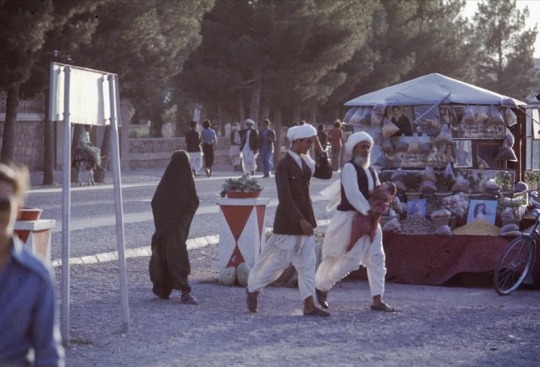
Herat, Afghanistan 1974
66 notes
·
View notes
Text
The Best News of Last Week - April 3, 2023
Kentucky Legalizes Medical Marijuana in Bipartisan Vote After Decade of Failed Attempts

The state of Kentucky has legalized the use of medical marijuana. The bill received final passage on Thursday. Democratic Gov. Andy Beshear signed it into law Friday morning after a decade of failed attempts in the state legislature.
The news makes Kentucky at least the 38th state in the U.S. to legalize medical marijuana.
Now Indiana is surrounded by weed states. The encirclement is complete 😂
2. The Maryland House of Delegates voted Saturday to approve the Trans Health Equity Act
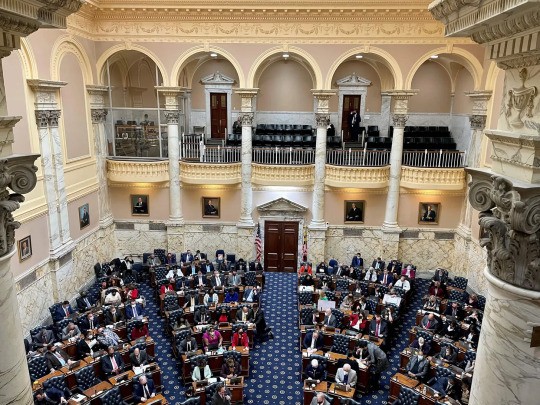
The Maryland House of Delegates voted Saturday to approve the Trans Health Equity Act — a bill that just a year ago disappeared from the chamber’s agenda ahead of a floor vote.
The bill would require Maryland Medicaid, beginning on Jan. 1, 2024, to provide coverage for additional gender-affirming treatments, which are currently disallowed in the state’s plan but commonly covered by private insurance. The expanded treatments include hormone therapy, hair alteration, voice therapy, physical alterations to the body, and fertility preservation.
3. FDA approves over-the-counter Narcan. Here's what it means

The approved nasal spray is the best-known form of naloxone. It can reverse overdoses of opioids, including street drugs such as heroin and fentanyl and prescription versions including oxycodone.
Making naloxone available more widely is seen as a key strategy to control the nationwide overdose crisis. Effects begin within two minutes when given intravenously, and within five minutes when injected into a muscle. The medicine can also be administered by spraying it into a person's nose.
4. Boston expands tuition-free community college program to all residents

Boston has expanded its tuition-free community college program to include all city residents regardless of age, income or immigration status.
Starting this fall, any city resident will be eligible to pursue an associate’s degree or certificate at one of six partnering local institutions without paying to attend. The program also includes a $250 stipend for incidental expenses each semester for up to three years, and up to $2,500 of debt relief for students whose account balances are keeping them from re-enrolling.
5. First cheetah cubs born in India since extinction 70 years ago

India has welcomed the birth of four cheetah cubs - more than 70 years after the animals were declared officially extinct there.India's environment minister announced the good news, calling it a "momentous event".
The country has been trying to reintroduce the big cats for decades, and last year brought eight cheetahs over from Namibia as part of the plan. Another 12 cheetahs were brought to India from South Africa last month.
6. BBC education show in Afghanistan helps children banned from school

The BBC has launched a new education programme for children in Afghanistan who are banned from school.It is aimed at children aged 11 to 16, including girls whose secondary education has been stopped by the ruling Taliban.
The weekly programme is called Dars, which means lesson in Dari and Pashto, Afghanistan's official languages. It is hosted by BBC Afghan female journalists who were evacuated from Kabul during the 2021 Taliban takeover.
Each new weekly half-hour episode of Dars will air four times a day, Saturday to Friday, on the newly launched BBC News Afghanistan channel.
7. A Trans Creator Has Raised Over 1.5 Million for Trans Healthcare on TikTok Live

Transgender TikTokers are celebrating Trans Day of Visibility by raising over $1.5 million for gender-affirming care around the world.
Mercury Stardust — a DIY TikToker and trans advocate who calls herself the “Trans Handy Ma’am” — raised $120,000 last year in a livestream for the mutual aid nonprofit Point of Pride, which maintains funds for surgeries, hormone therapy, and free binders and gaffs. This year, Stardust and cohost Jory, a.k.a. AlluringSkull, set themselves a goal of raising $1 million in a planned 30-hour live stream…and then smashed that milestone less than six hours after starting the stream Thursday evening.
----
I have started a Youtube channel with wholesome videos I can find on the internet. Check it out :)
That's it for this week :)
This newsletter will always be free. If you liked this post you can support me with a small kofi donation:
Buy me a coffee ❤️
Also don’t forget to reblog
436 notes
·
View notes
Text
Unconventional warfare constituted the US method of choice to weaken or overthrow unwanted governments. It was designed to “roll back” governments deemed detrimental to US interests and those of global capital. Such strategies depended almost entirely on para-institutional complexes. US agencies liaised with and coordinated complexes of local collaborators, insurgents, militias, “secret” armies, mercenaries, private air-military contractors and other para-institutional forces to influence the political and economic orientation of foreign states. These efforts to weaken unwanted foreign governments or towards regime change extended around the world to countries such as Albania (1949–53), China (1949–60s), Burma (Myanmar) (1951–53), Tibet (1959–60s), Iran (1953), Guatemala (1954), Syria (1956–57), Egypt (1957), Indonesia (1957–58 and 1965), Iraq (1963), North Vietnam (1945–73), Cambodia (1955–70), Laos (1958–63), Cuba (1959–present), Chile (1964–73), Greece (1967), Bolivia (1971), Zaire (1975), Angola (1975, 1980s), Seychelles (1979–81), Libya (1980s), Grenada (1983), South Yemen (1982–84), Nicaragua (1981–90), (Afghanistan 1979–89), Fiji (1987), among others.
Andrew Thomson, Outsourced Empire: How Militias, Mercenaries, and Contractors Support US Statecraft
129 notes
·
View notes
Note
What does Norway think of the us
Far too many things for me to begin to cover in a tumblr post.
Suffice to say: we arguably owe our welfare and current standing in the world and inarguably our liberty as a nation to the US. This has shaped our domestic and foreign policies for the past 80 years, and we are currently breathing into a paper bag about the fact that Uncle Sam is talking about breaking up with us.
Also beware, there are matters in this post which are a matter of political opinion (rare for this blog, I know), and there are nightmareishly long paragraphs in here, so read at own risk and sorry about the long paragraphs.
Readmore for length and in case I need to make edits.
Norway, the war, and the Marshall Help
Imagine: your country is invaded by Nazis in 1940, and remains occupied for five years. When you are liberated, your country's gold reserve is depleted, many places bombed, and the entirety of Northern Norway is so badly ravaged that the population is evacuated and the region deemed uninhabitable (you'll notice, today, the architecture up north is new. All of it.). To say nothing of the human toll: one third of our Jewish population was slaughtered in Auschwitz, the country is littered in war memorials and tombstones of men shot or otherwise killed by Germans, and every family has at least one wartime story.
(I will take a note to say that it's our own occupation that comes to mind when I see the war and genocide happening in Ukraine. The differences are many, but the shared horror of an invasion, the fact that this happens on European mainland and is perpetrated by a country we share a border with, makes it feel extremely close. More, if Ukraine loses... I'll get into that further below, but suffice to say "Norway's defense budget" these days is labelled "Ukraine aid")
What are you going to do when peace comes, and the time to rebuild is upon you? Well, it so happens the rest of Europe is asking itself that same question, and the United States meanwhile sees an opportunity to both help its allies, strengthen our bonds so that we'll be on the same side for the foreseeable future, and weaken the communist sympathies in Europe. It's a win-win type of deal, and so the Marshall aid is launched: billions of dollars ($13 billion then, $178 adjusted for inflation) are poured into Europe, bolstering the post-war economy and allowing the countries which accepted (all of Western Europe, save Spain and Finland. Eastern Europe and the Soviet Union declined as well.) to get back to their feet much sooner.
It's in this context that Norway's government's plans of a welfare society were possible to realize. Perhaps we would have managed it anyway, but the historically recorded fact is we did it with the help of the USA.
Then there's NATO, that beautiful response to not only the Eastern threat, but to the naivety that had reigned prior to World War II. Hitler had... helped himself... to increasing chunks of Europe, and country leaders kept saying "Well I don't want war, and I'm sure he'll be satisfied after that. Oh no, he invaded Poland?! Oh well I'm sure he'll be satisfied with- oh no, he's entered France!"
NATO means "Invade one, you fight us all", and while it may have come to mean "one invades Afghanistan, so now I guess we're all going" and even "boy Ukraine is having it rough huh. But we can't do anything without getting NATO involved, and that'll launch a new world war :/", and de facto "if NATO ever acts against Russia that will be world war three. Hang on, what's NATO for then?", NATO at its core still means "I am in NATO, so Uncle Sam will protect me. :)"
Which makes countries like Norway feel very safe. And, I cannot overemphasize, is why we've felt safe for the past 70+ years.
Which brings us to the next section.
That border. That border!!
If you look at a map of Norway, you'll see a long and happy border to Sweden. There has been much discourse (and war, war, war) over that border, I for one still think it would be nice if they gave us back Bohuslän, but overall we are very close and good allies.
Look a little further up, however. Yes, past the border to Finland.
Is that...

(photo credit)
Oh no, it's Russia!
This hasn't always been an oh no. We lived peacefully side by side frankly always, and the Soviets liberated Finnmark from the Nazis which was wonderful of them. Then Norway accepted the Marshall Aid, however, and while our governing party had had strong communist sympathies prior to the war (and after...) this cemented our ties to the United States. Our side in the Cold War had been chosen.
Border relations with Russia have been good, they have had to be good, but NATO was our safety and security during a very tense period of time. (This comedy skit is very funny but... kind of true... as does the entire Whaledimir debacle (adorable whale charmed the country, but was Whaledimir a Russian spy? Somehow, the answer appears to be yes.) The Russo-Ukrainian war has made relations historically bad, however. (Norwegian news article on the topic, if you feel like translating.)
Where am I going with this?
Norway has a shared border with Russia. Norway would not be capable of defending Finnmark if Russia invaded from the shared border, and having Sweden and Finland join NATO makes us feel better but the defense strategy has still been (and remains) "we defend what we can until US reinforcements arrive". One of the sexiest things the US has done this year was send a massive war ship sailing into our waters, just to say hello and show off their presence. MUCH APPRECIATED.
And, again, this might seem very remote and like the plot of a bad political thriller to the cursory anon and even to many Norwegians, but we were invaded in the last century, we have a shared border, a strategically important coastline and a lot of natural resources (oil!), and should Ukraine (god forbid) lose the war, the question will be this: what does Russia do next? What, specifically, does NATO and the US do if Putin for instance decides to take Svalbard? Is anyone risking nuclear war over Svalbard? What about Finmark? What about cyber attacks, underwater cable att- oh wait there were two underwater cables cut open yesterday.
Gee, that's not worrying at all.
In summation
America is a very important trade partner, and the cultural and political influence you have on us (on all of Europe, really) is immense. I imagine most asked would focus on that, especially on Norway's thoughts on the election, but you asked me and so you get my answer. Your election was a sports match to us (or at least covered by media and social media like one).
I will say this: Trump's first victory had us worried, and we have spent more on defense since then, but his second victory proves the first was not a fluke and the United States is shifting away from us. This is not something we can influence, as it is the will of the American people (or at the very least what they voted for), what we must do is adapt. I, a lifelong opponent to Norway joining the European Union, now see no other way if Norway is to prosper (though the EU also needs a major makeover to survive now, on our own without the US we are all shaking in our knees here in Europe). Likewise, to paraphrase a very good op-ed, Norway's national security neither can depend on a few undecided voters in Wisconsin who aren't thinking about Europe or Norway at all, nor should it.
We have been too dependent on the United States, this has been mutually beneficial and if it was up to us, this wouldn't change (I am now ignoring a faction on the far left which has been saying "Guys, I have a great idea: we should leave NATO :)" and another faction on the far right which is so eager to please Trump-senpai they think Norway is supporting Ukraine's effort because we're stupid), sadly it seems the US wants it to change.
We shall see what happens.
36 notes
·
View notes
Text
Charlie’s message along with the links and a little note at the end


Original Post
https://x.com/insidetheslime/status/1750576531569553747?s=46&t=zq839cegjCBSp5j3Fy48oA
#charlie slimecicle#qsmp#mcyt#palestine#Gaza#ceasefire#global strike#important#qsmp charlie slimecicle#qsmp with palestine
136 notes
·
View notes